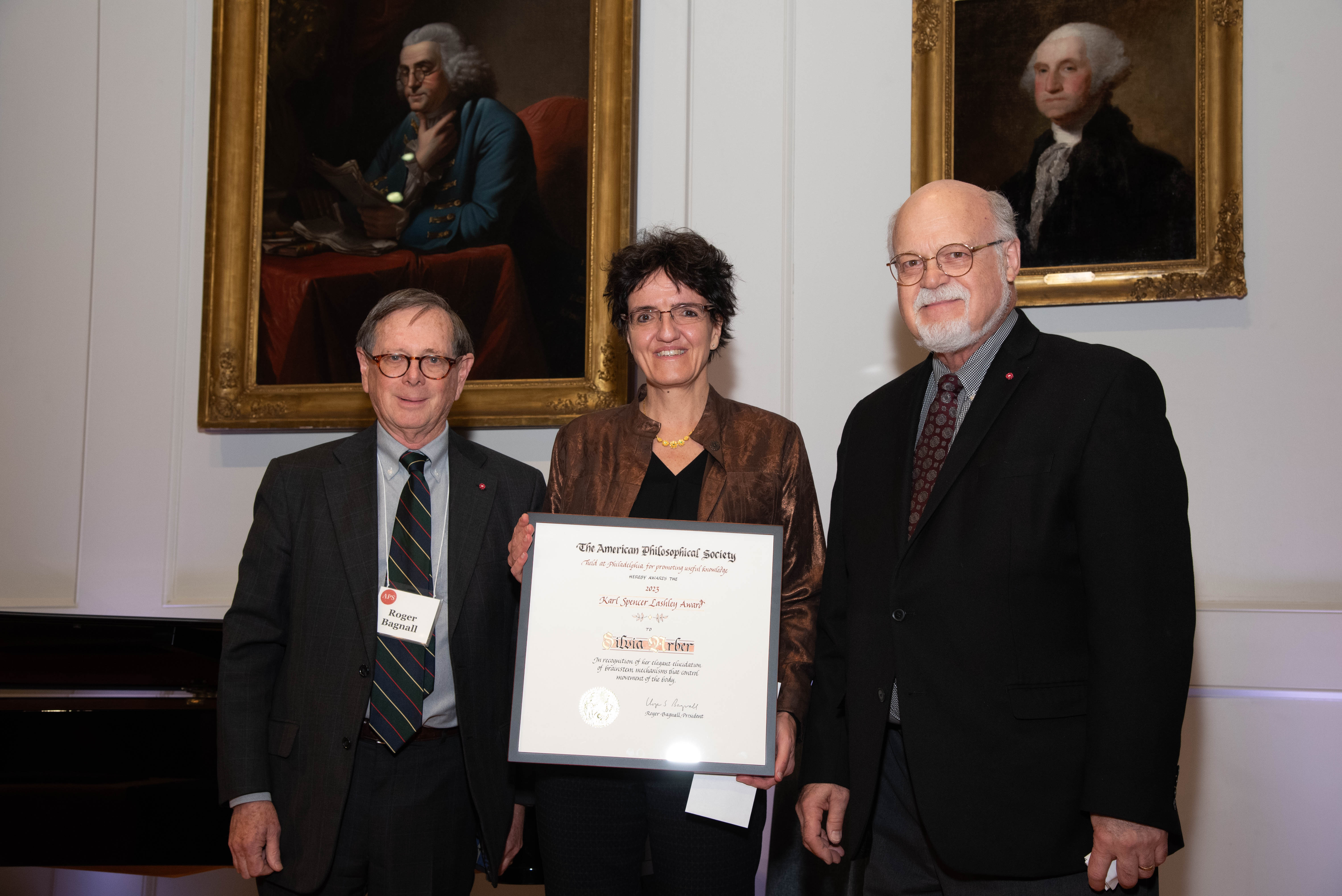2023 Karl Spencer Lashley Award

The recipient of the American Philosophical Society’s 2023 Karl Spencer Lashley Award is Silvia Arber, Professor for Neurobiology/Cell Biology, Biozentrum, University of Basel, Switzerland in recognition of her elegant elucidation of brainstem mechanisms that control movement of the body. The award was presented at the November 2023 meeting of the American Philosophical Society.
Silvia Arber has made fundamental discoveries concerning the organization and operation of intricate motor circuitry in the brainstem, advancing our understanding of circuit computation in cell populations that implement downward control of the spinal cord during movement. Using elegant behavioral dissection methods in combination with state-of-the-art cell type-specific molecular interventions, she showed that hitherto undescribed, spatially intermingled brainstem circuits have specialized roles in the activation of specific muscle groups via particular motoneurons in the spinal cord. Furthermore, she showed that well-defined subsets of these brainstem nuclei receive functionally specific inputs from locomotor circuits in the midbrain and further upstream, as well as the brain’s fear and escape circuits in the amygdala and periaqueductal grey, pointing to multiple circuits for activation of specific behaviors. As a result of Arber’s spectacular work, the premotor brainstem nuclei are being converted from a terra incognita to an interesting and functionally understandable system of microcircuits. Her discoveries have opened fertile new ground for understanding how movement is controlled in the healthy brain and how it is affected in neurodegenerative disease.
The Karl Spencer Lashley Award was established in 1957 by a gift from Dr. Lashley, a member of the Society and a distinguished neuroscientist and neuropsychologist. His entire scientific life was spent in the study of behavior and its neural basis. Dr. Lashley’s famous experiments on the brain mechanisms of learning, memory and intelligence helped inaugurate the modern era of integrative neuroscience, and the Lashley Award recognizes innovative work that continues exploration in the field.
The members of the selection committee are William T. Newsome III (chair), Harman Family Provostial Professor, Vincent V. C. Woo Director of the Stanford Neurosciences Institute, Professor of Neurobiology and, by courtesy, of Psychology, Stanford University; John E. Dowling, Gordon and Llura Gund Research Professor of Neurosciences Emeritus, Harvard University; Catherine Dulac, Higgins Professor of Molecular and Cellular Biology, Lee and Ezpeleta Professor of Arts and Sciences, Harvard University, and Investigator for Howard Hughes Medical Institute; Ann M. Graybiel, Institute Professor, Department of Brain and Cognitive Sciences, Investigator, McGovern Institute for Brain Research, Massachusetts Institute of Technology; John G. Hildebrand, Regents Professor of Neuroscience, University of Arizona; Eric Knudsen, Sewell Professor of Neurobiology Emeritus, Stanford University School of Medicine; Edvard Moser, Professor of Neuroscience, Director, Kavli Institute for Systems Neuroscience, Norwegian University of Science and Technology; and Larry R. Squire, Distinguished Professor of Psychiatry, Neurosciences, and Psychology, University of California, San Diego, Research Career Scientist, Veterans Affairs Medical Center, San Diego.
